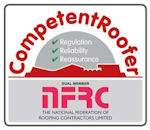- FAQs
Roofs & Installation
What's a good roof for solar?
Perfect is a south facing, unshaded roof, pitched at a 30 degree angle, and at least 20m2 for a 2.5kW PV system. Few houses are perfect – but solar performance can still be good. The table below shows how performance varies with inclination and orientation away from optimum.
Would I need planning permission for solar panels?
You generally don't need planning consent for solar due to the government ‘relaxing’ the planning regulations. Exceptions are in conservation areas if your solar panels would be visible from the road side of the property, or if your property has Listed Building status. We have an in house planning advisor who can assist but you can also check with your local council planning office if you are not sure.
Does my mortgage company need to know about solar panels?
Solar may be viewed as a modification by mortgage lenders (just like an extension or velux window), so it is best to inform them and we will require their written consent before commencing work.
How much weight will the solar electric system put on my roof?
Solar PV panels are not particularly heavy – a typical one weighs around 15kg (that's like seven 2 litre bottles of soft drink). The weight of a system falls well within the building regulation requirements for most houses, but this will be confirmed during the technical survey before any installation.
How long does it take to fit the solar system?
It should only take a 1-2 day’s to fit the panels, weather permitting. We use lightweight scaffolding and carry out most of the work outside. The only time we need access inside, is to get into the loft space to fit an inverter and to fit another meter – normally close to your existing meter - and to explain how it all works.
Will I have to do anything to make the panels work?
Everything happens automatically. When the solar panels are fitted, you use your electricity as normal. If there is electricity being produced by the panels when you use anything electrical it will use that first automatically. If there isn't enough being produced for what you need, or if it is night-time, then you will automatically use electricity from your usual supplier.
Are you registered to do this?
Yes. All the equipment and the installation service meet the Microgeneration Certification Scheme; (MCS) electrical work is carried out only by Part P qualified electricians.
Will I receive a certificate for all the electrical work?
Yes, absolutely.

